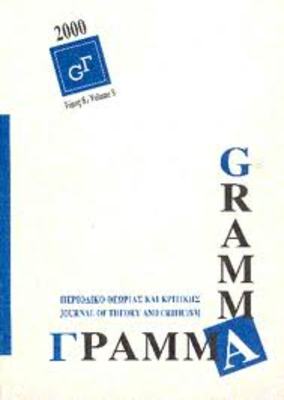Corporeality and the metropolis : dissolving the body in Paul Auster’s The New York trilogy
Part of : Γράμμα : περιοδικό θεωρίας και κριτικής ; Vol.11, No.1, 2003, pages 139-149
Issue:
Pages:
139-149
Section Title:
Bodies wrestling against social and cultural regulation
Author:
Abstract:
This article deals with the theme of the shattering of the body in the contemporary urban environment as it appears in Paul Auster's The New York Trilogy. In the three novels of The Trilogy, the writer deals with the complex interaction between the metropolitan cityscape and the human body: moving through a labyrinthine New York whose dimensions exceed by far the human scale, Auster's heroes experience conditions of depersonalization and assumed absorption by space, which finally lead them to the extreme state of the dissolution of their bodies. This transgression of the physical body, that "melting into the walls of the city" (139), is however celebrated by Auster as a form of transgression of logical boundaries, which enables thought to reveal its poetic nature: the heroes may disappear in the end, they leave behind them however a written story - product and witness of their existence in the postmodern city that escapes all anthropomorphic qualities in order to reveal a more archaic and inspiring imagery.
Subject:
Subject (LC):
Notes:
Περιέχει βιβλιογραφία




